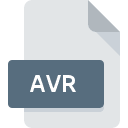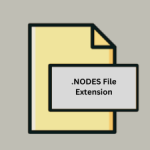.MPGA File Extension

MPEG-1 Layer 3 Audio File
| Developer | N/A |
| Popularity | |
| Category | Audio Files |
| Format | .MPGA |
| Cross Platform | Update Soon |
What is an MPGA file?
The .MPGA file extension, commonly associated with MPEG-1 Layer 3 Audio files, is a standard format for audio compression.
The acronym MPEG stands for the Moving Picture Experts Group, the authority that established this audio format.
The MPGA format is well-known for its ability to compress audio data without significantly compromising the quality, making it a ubiquitous format for digital audio storage and transmission.
More Information.
The development of the MPEG standard, including the MPGA file format, was a response to the growing need for high-quality digital audio compression. In the early days of digital media, storing and transmitting audio files was challenging due to their size.
The MPGA format was revolutionary because it offered a way to compress these files, making them more manageable for storage and transmission, without a noticeable loss in quality.
This breakthrough was crucial for the proliferation of digital media, paving the way for technologies like digital radio, online music streaming, and MP3 players.
Origin Of This File.
The .MPGA file extension is an integral part of the MPEG audio and video compression standards. These standards were developed by the Moving Picture Experts Group, which was established in 1988.
The group’s primary goal was to set standards for audio and video compression and transmission to ensure compatibility and efficiency across various devices and platforms.
File Structure Technical Specification.
An .MPGA file contains compressed audio data encoded using the MPEG-1 standard Audio Layer 3. This format uses a lossy compression technique, meaning some of the original audio data is lost during compression to reduce the file size.
The MPGA format is designed to discard parts of the audio that are less perceivable to the human ear, thus maintaining a high-quality auditory experience.
Technically, MPGA files use perceptual audio coding and psychoacoustic compression to minimize file size while retaining sound quality.
How to Convert the File?
Using Desktop Software:
1. Audacity (Windows, macOS, Linux):
- Download and install Audacity.
- Open Audacity and import the .MPGA file by clicking
File>Openand selecting the file. - Once the file is loaded, click
File>Exportand choose your desired format (e.g., MP3, WAV). - Configure any settings if needed, then click
Saveto convert and save the new file.
2. FFmpeg (Windows, macOS, Linux):
- Download and install FFmpeg.
- Open a command line interface (Terminal on macOS/Linux, Command Prompt on Windows).
- Use the following command structure:
ffmpeg -i input.mpga output.format(replaceinput.mpgawith the file name andoutput.formatwith the desired format, e.g.,output.mp3). - Press Enter to execute the command and start the conversion.
Using Online Conversion Services:
1. Online Converters (like Zamzar, CloudConvert):
- Open your web browser and navigate to the online conversion service.
- Upload your .MPGA file by clicking the
Uploadbutton or dragging and dropping the file. - Choose the target format you want to convert your .MPGA file to.
- Click
Convertto start the conversion process. - Once the conversion is complete, download the converted file from the website.
Advantages And Disadvantages.
Advantage:
- High Compression Rate: MPGA files offer significant compression, reducing file size without a corresponding decrease in perceived audio quality.
- Compatibility: The format is widely supported across various software and hardware, ensuring easy playback and distribution.
- Quality: Despite being a lossy format, it maintains a high-quality audio output, making it suitable for both professional and casual use.
Disadvantage:
- Lossy Compression: Some original audio data is irreversibly lost during compression, which might not be acceptable in scenarios requiring exact replication of original audio.
- Patent and Licensing: There are certain restrictions and licensing requirements for using MPEG-1 Layer 3 technology, which can complicate its use and distribution.
How to Open MPGA?
Open In Windows
1. Windows Media Player:
- Right-click on the .MPGA file.
- Choose
Open with>Windows Media Player. - If Windows Media Player is not listed, click
Choose another app, then find and select Windows Media Player.
2. VLC Media Player:
- Download and install VLC Media Player if you haven’t already.
- Right-click on the .MPGA file.
- Choose
Open with>VLC Media Player.
Open In Linux
1. VLC Media Player:
- Install VLC if it’s not already installed (you can use package managers like
aptoryum). - Right-click on the .MPGA file.
- Choose
Open with>VLC Media Player.
2. Audacious:
- Install Audacious using your distribution’s package manager.
- Right-click on the .MPGA file.
- Choose
Open with>Audacious.
Open In MAC
1. VLC Media Player:
- Install VLC if it’s not already installed (you can use package managers like
aptoryum). - Right-click on the .MPGA file.
- Choose
Open with>VLC Media Player.
2. Audacious:
- Install Audacious using your distribution’s package manager.
- Right-click on the .MPGA file.
- Choose
Open with>Audacious.
Open In Android
1. Use a File Manager:
- Open your file manager app.
- Navigate to the .MPGA file.
- Tap on the file. Android should suggest compatible apps to open it with (like VLC for Android or the native music player).
Open In IOS
1. VLC for Mobile:
- Download VLC for Mobile from the App Store if you haven’t already.
- You can transfer the .MPGA file to your iOS device via AirDrop, iCloud Drive, or direct file transfer.
- Open VLC for Mobile and navigate to the directory where you saved the file.
- Tap on the .MPGA file to play it.
Open in Others
For less common operating systems or specialized devices, the process will vary significantly based on the software ecosystem and the apps available. Generally, you would:
- Look for a media player or an app that supports MPEG-1 Layer 3 audio files (.MPGA).
- Install the app, if not already available on the device.
- Use the app to navigate to and open the .MPGA file.













